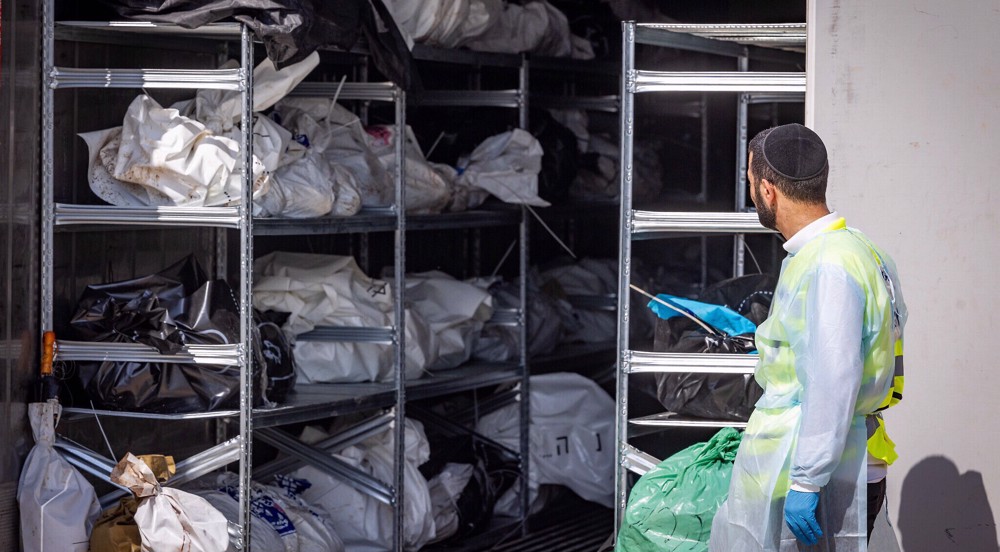Staring into abyss: Tens of thousands of Israeli businesses down shutters amid war
By Maryam Qarehgozlou
Since the launch of Israel’s genocidal war against Palestinians in the Gaza Strip, the regime’s economy has been “seriously damaged” with tens of thousands of businesses forced to down their shutters, according to reports in Israeli media.
The Hebrew language newspaper Maariv in a report on Wednesday stated that since the war broke out on October 7, 2023, around 46,000 businesses have so far closed down in the occupied territories.
Referring to the “collapse” of the regime, the Israeli information services and credit risk management firm, CofaceBdi, estimated that nearly 60,000 Israeli businesses will be closed by the end of 2024.
Yoel Amir, CEO of CofaceBdi, told the Israeli newspaper that “almost no sector has been spared.”
Labor shortages, declining sales, high interest and financing costs, transportation and logistics issues, shortages of raw materials, restricted access to agricultural areas in combat zones, absence of customers involved in the war, supply chain disruptions, and increased procurement costs are among the major challenges the Israeli economy is currently grappling with, the report said.
Vulnerable economy
“About 77 percent of the businesses that have been closed since the beginning of the war, which make up about 35,000 businesses, are small businesses with up to five employees, and are the most vulnerable in the economy,” the report stated, sounding warning bells.
It also highlighted that the construction industry and the entire ecosystem that operates around it are among the “most vulnerable industries” amid the war that is now in its tenth month.
“The ceramics, air conditioning, aluminum, building materials, and more - all of these were significantly damaged.”
The report noted that there has been “almost no foreign tourism” since the war broke out on October 7.
Israeli daily Haaretz reported last Monday that between January and June of this year, just over 500,000 tourists arrived in the occupied territories, a 76 percent drop in comparison to the same period last year, when just over 2 million tourists visited Israel, according to the Central Bureau of Statistics.
The report by Maariv also said other hardest hit sectors include the trade sector, which includes the fashion industry, footwear, furniture, and housewares, and the services sector includes cafes, entertainment and leisure services, as well as transportation.
The agriculture sector, it said, which is mostly located in the combat zones in the south and the north, suffers from an acute shortage of manpower.
“The damage to the Israeli economy is extensive on all fronts. When companies close and cannot meet their financial obligations, it ripples out to affect customers, suppliers, and others within their ecosystem,” the report noted.
Threats to Israel’s tech industry
On Wednesday, Shlomo Dovrat, one of Israel’s top tech investors, warned that Israel’s ongoing war on Gaza is threatening its high-tech industry and could pose a serious risk to its economy.
According to Dovrat, people are going to leave the occupied territories and create their startups elsewhere where conditions are more feasible.
Earlier this month, the RISE Israel Institute warned in a research report that the continuous drop in the number of active investors in the Israeli tech sector in the occupied territories is “extremely concerning,” and poses a threat to the survival of the local ecosystem.
Israel’s economy’s dependence on the high-tech sector has significantly grown in the past decades.
The Israeli high-tech industry last year contributed 20 percent to local GDP, versus 6.2 percent in 1995, and made up 53 percent of total exports amounting to $73.5 billion, while generating tax revenues for the regime.
Tensions hurting Israel’s economy
Tensions have risen between Israel and the Lebanese resistance group, Hezbollah, in the north of the occupied territories as the war drags on, forcing tens of thousands of Israeli settlers to leave the area.
Hezbollah has frequently said that its attacks on northern Israel will cease once Israel ends its genocidal war on Gaza which has so far killed close to 38,500 Palestinians.
The exchange of fire across the border has become more intense in recent weeks with Israeli officials warning of escalation if Hezbollah does not pull back its forces from the border.
However, Hezbollah has demonstrated through recent video warnings that it is capable of attacking Israel’s key energy infrastructure such as oil refineries and gas tanks.
“Our goal of draining the enemy’s economy … has been achieved,” Hezbollah Leader Sayyed Hassan Nasrallah declared last week.
The likelihood of escalation with Hezbollah has created fear among Israeli settlers that any full-scale war with the Lebanese resistance would plunge the regime’s economy much deeper into the abyss.
Israeli newspaper Yedioth Ahronoth, in a recent report, warned of an “economic darkness” scenario and the risks that an all-out war with Lebanon could pose to the regime’s capital market.
The risks, it said, could involve cyberattacks and continuous hacks, data leaks and the interruption of vital services, as well as the flight of investors in the stock market.
The report said Israel’s Cyber Warfare division estimates that “the total cost [of cyberattacks in Israel] is approximately 12 billion shekels annually (around 3.5 billion dollars), a record amount reflecting only the potential economic damage that could occur during a strong northern war.”
To the south, the Yemeni army’s Red Sea operations, which began in November last year in solidarity with the people of Gaza, targeting the Israel-linked ships, have also contributed to the Israeli economy’s downfall, by forcing ships to take longer routes and limiting revenue at key ports such as Eilat.
Yemen in May moved into a “fourth phase” of its operation and expanded the scope of attacks to include the Mediterranean Sea with new longer-range missiles and bigger warheads.
Ripples of Gaza war to expand
Every sector of the Israeli economy – from high-tech to agriculture to tourism to various industries – has been irreparably dented by the raging war on Gaza, a problem exacerbated by the shortage of workforce and precarious situation.
The costs of war have already driven up the military and other spending of the Israeli regime, leading to a fiscal shortfall of 7.6 percent of gross domestic product in June and breaching the deficit target ceiling of 6.6 percent that the regime had set for 2024.
On Monday, the Bank of Israel downgraded the regime’s growth outlook from its April estimates because of the impact of its war on Gaza, with a “long way to go” for any semblance of normalcy.
It said that the war’s direct impact on the economy will continue until the beginning of 2025.
"The war has considerable economic ramifications, which impact on Israel’s economy … there is still a very long way to go before fully returning to normal activity,” said Amir Yaron, Governor of the Bank of Israel.
In February this year, US credit rating agency Moody’s downgraded the regime’s rating and outlook from “stable” to “negative”, which has only turned from bad to worse now.
VIDEO | Hind Rajab Foundation names Israeli war criminals vacationing after Gaza genocide
VIDEO | Australians rally for Gaza ahead of Christmas festivities
VIDEO | Attacks on Sana'a
Iran reports further drop in annual inflation rate in December
Israel indicts two settlers over suspected spying for Hezbollah
Iran: US airstrikes on Yemen war crimes, violation of international law
Yemeni armed forces down F-18 fighter jet, repel US-UK attack: Spokesman
Iran warns against US-Israeli plot to weaken Muslims, dominate region















 This makes it easy to access the Press TV website
This makes it easy to access the Press TV website